… and easily trade cost and environmental impact, for time!
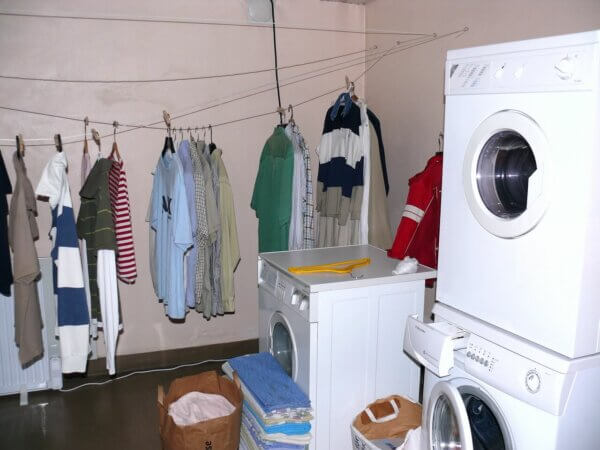
“Do laundry”… what does that mean to most of us? It means carting a large pile of clothes in a bin or basket to one’s home washer and dryer, or if you’re one of the many unfortunate bunch like me, you cart it to a nearby laundromat’s washer and dryer. I’ve only “done laundry” once since moving into my new apartment, and as I don’t own a car–you guessed it–I packed my clothes into a massive backpack and pedaled it across my neighborhood to the laundromat, swaying all the way. Obviously not an impossible scenario, but surely an uncomfortable one!
But as with so many other things about living a modern American lifestyle, my conscience shouts louder and louder each time I subscribe to certain activities that I know to be environmentally harmful. The toxic chemicals in many common soaps aside, purely the use of electricity (when knowingly powered by coal plants, as is true for my region) is a harmful act. I don’t like living with the idea that I must contribute to environmental devastation each time I want to wear fresh-smelling, tidy clothing! Not washing clothes at all, ever (as many of my “crust-punk” friends do) is not a reasonable option for most of us.
The clock was ticking. I had only an hour or two to make my decision, before I had to leave for work.
Today was the periodically dreaded day when my laundry bin reached critical mass, and I realized I needed to do laundry.
Do I take it to a laundromat, dump it into appliances, and read a book while my clothes become easy-breezy clean? The consequences of that are: energy use, travel energy, and cost! Washing and drying clothes at a laundromat can cost up to $5 a load!
But what if we could re-invent our notion of what “doing laundry” means? Forget “high-efficiency” washer and dryer appliances that, while an improvement in terms of water and energy use, still perpetuate widespread and probably-ultimately unsustainable practices. Where can the energy–and water–come from that would be sustainably sourced?
Your hands. And your sink. (And for clothes-drying? The air.)
It’s such a simple solution that I might almost have missed it!
Em-bed-ded journalism
My first attempt at handwashing clothes gave me mixed results.
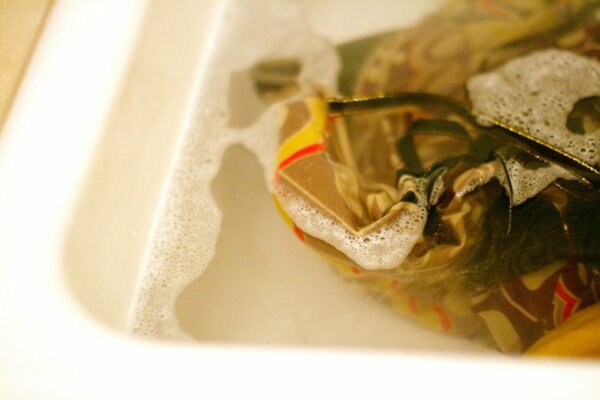
First and foremost, I felt good about my choice. (After all, that is the main reason we decide to do anything!) It felt good to do it myself and learn a new skill meanwhile. Using my hands to knead and wring the clothes definitely gave me an unexpected work-out!
Summarizing the instructions from this excellent VideoJug clip, I let my clothes soak in a soapy solution for a few minutes (I was sure to use a gentle, biodegradeable detergent that would not harm aquatic life in my region’s waterways). Then I kneaded them all together, and proceeded to rinse each item one by one under the faucet.
My strategy didn’t work out so well for all items, unfortunately. It was hard to discern when the item was truly flushed of detergent. Socks and underwear–these were easy to rinse thoroughly. My bath towel was another story.
First of all, the towel soaked up all the water in the sink as soon as I put it in! (This is a seemingly obvious result, but I’m not too bright sometimes!) The towel then became so heavy as to be almost unmanageable. I rinsed and rinsed and rinsed it, but because the material was so thick and so absorbent, I wasn’t sure if I had rinsed it clean of all soap. Upon drying it… I clearly did not. It was stiff and starchy, smelled like detergent, and was very unpleasant to dry off with. Boo!
The other point, that must not be over-looked, is time-consumption. Most of us accustomed to washers and driers expect our clothes to transform from dirty to clean in an hour and a half, at most. Using the hand washing method, air-drying clothes may take two days before the items are fully dried. (Yikes!) Plus, during the time you’re washing your clothes, you can’t go and read a book or do something else, like you can using a washer… you are literally busy washing your clothes!
Related Post: Best Wringer Washer
My advice to the new home washer is: socks, underwear and delicates are great things to wash in your sink. You’ll enjoy all the environmental benefits of handwashing clothes, plus that extra work-out! They may even come out better than they would from your washing/drying machines.
Big, heavy fabrics–like jeans and towels–should probably not be washed in just your sink. You need more space and an adequate agitator to wash these things fully.
We are all part of a learning, green community. Please share your advice for handwashing clothes–especially with respect to the environment–below!
photo credit: public domain (Wikimedia Commons); Ashley Anne at Life Tonic



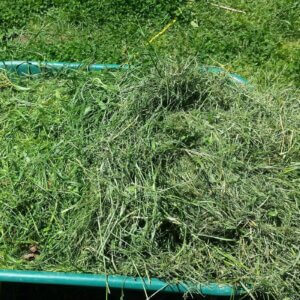


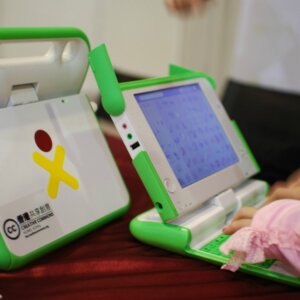
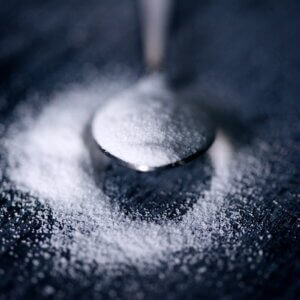


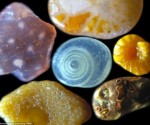
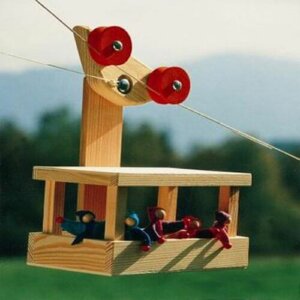
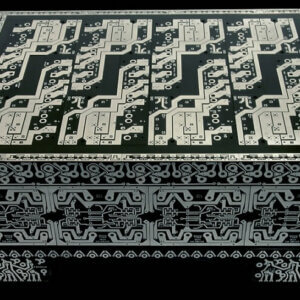


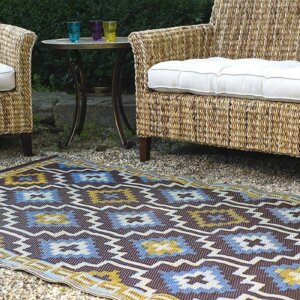

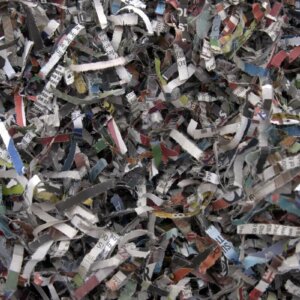



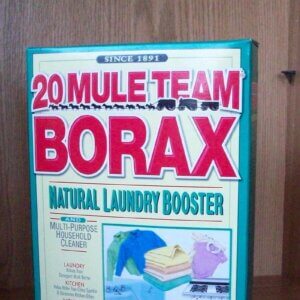
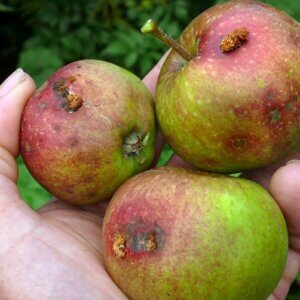
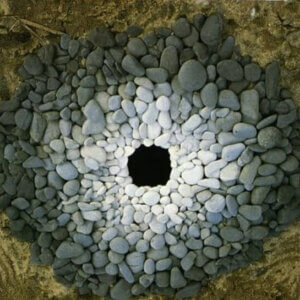

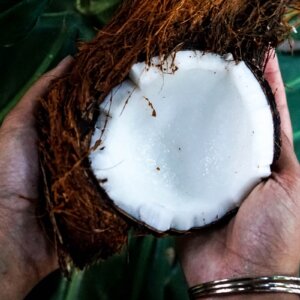




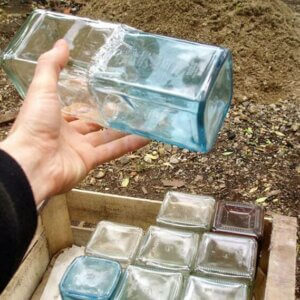

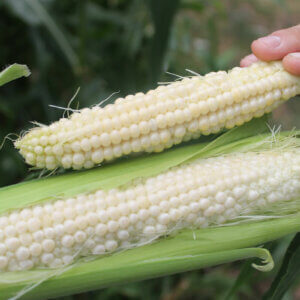

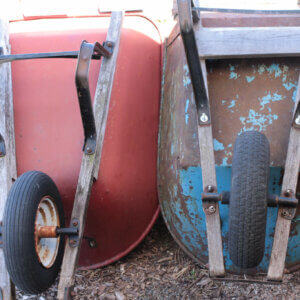


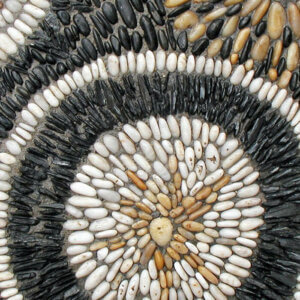

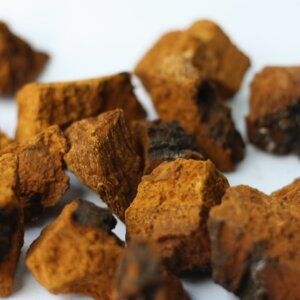


And how much water did you use to rinse the soap out of your clothes while hand washing them? I’m sorry, but there are plenty of energy efficient, water saving, washing machines on the market.
And as for air drying, this is fine if you have sufficient space inside to set up drying racks, but your towels and comforters or blankets will take forever to dry (unless you have an outdoor clothesline). Sometimes, you just have to make trade-offs when you are striving to be more “green”.
Yes, there are plenty of efficient washing machines on the market…I bought one 7 years ago and it is now DEAD! Never again will I shell out my hard earned cash to pay for someone else’s TRASH! And I know I’m not the only one to have this experience. These companies PLAN for their products to only last a few (very few) years. It’s called planned obsolescence. They know that no matter how few years ago you just bout a brand new…whatever…that you’ll think that it MUST to be replaced. They count on people thinking that they can’t live without their product. I say SREW ‘EM! If you want something done right; do it yourself!
I can’t speak for the author of the article but, when I handwash my clothes, I use three gallons of water. I soak in soapy water, agitate by hand, dump water. Then replace with fresh water, let soak, agitate, and repeat. I use 100% biodegradable soap so I can water trees with the waste water.
I also do two or three days worth of clothes at a time, so…the amount of “drying racks” and whatnot, is largely negligible, especially since I have such a short turn around time on my clothes, allowing me to own less clothing. Also, washing clothes because they’re dirty, not because you wore them, is super helpful.
Yes, comforters and the like are significantly more difficult to wash by hand. How often does one wash a comforter though? Is it, possibly, too often?
Really helpful ideas, this post was just perfect!
https://insteading.com/blog/another-green-living-option-hand-wash-your-clothes/ tnx for this
Bravo for giving it a shot! 🙂
I haven’t tried this yet myself, but I’ve read several times that using the bathtub to do bigger items is a better bet – and using a clean plunger to agitate is much easier and better at getting things scrubbed up and cleaned of the soap.
Another thing to consider if you decide to do this consistently is to invest in a) a scrubbing board (yes, a la the old washtub scrubbers – they still make them!) and/or a wringer washer. Try Lehman’s for both. I’ve heard they still offer them. The wringer washer might be a bit of a big ticket item, but in the end it could be well worth it. If the power goes out, you’ll be the only one on the block with clean clothes. 😉
Good point, Melonie… and thanks for the suggestions!
There is actually only one washboard manufacturer left in the USA.
I live alone in a very small cottage. I have been washing by hand for years & am fortunate enough to have 2 clothes lines outdoors. I have managed to cut down going to my laundromat to about once a month. I change my bed linens once a week. I wait until I have 4 sets of linen & 4 sets if towels in my hamper. Prior to this, I wash all my lingerie, shirts, washable pants, sweaters, etc by hand. I do not wash sweatshirts, sweatpants, etc that I wear when I come home from work but they are added to my laundromat hamper. Everything else, including dishtowels, I wash by hand. Dishtowels are treated to boiling water as are my sponges. When I know the weather will be good, I hang my down comforter & my down pillows on the clothesline & love the way they smell when I go to bed. Even if you have a washer/dryer, I would suggest hanging pillows & comforters outside. You will love the fresh air scent when you go to bed. Most of my clothes have this scent as well.
I’ve been reading your articles since this past summer when you were living in the tent. I started my own sustainable living project this past may, a permaculture homestead. Not entirely off grid but getting there. I use 1 to 2 kWh of electricity a day and about 4-5 gallons of water per day. 90% of my waste is composted or recycled and human waste is composted for use on fruit trees after two years. But, the point of the comment here is that you may want to look into the wonder washer, http://www.laundry-alternative.com/products/Wonderwash.html I don’t have one yet but will be ordering one next week. Uses no electricity and will wash small loads via a hand crank/tumble action that is sealed tight and creates high pressure thus forcing water and soap into and through the fabric. Looks like an ideal solution for those of us that want to wash manually.
Thanks for the great articles.!
@ carolinesavery: Great article! I know it’s been almost 5 years since it was written, but I learned a few things about hand washing clothes.
@ Denny: Thank you so much for that link! I’ve never heard of one of these until I ran across this blog post and decided to read through the comments. After checking out the link you provided, I’m so getting one, since I don’t have a washer/dryer or a vehicle, meaning I have to rely on friends and family to help me with laundry or bike across town with a backpack full of dirty clothes. I’ve gone through a few periods in my life where I’ve had to hand wash clothes, and it truly is a pain, merely for the fact that it never seems like I can get all the detergent out of the clothes. You truly are a life saver!
I have to agree with the first person who suggested you might be using more water by doing this. Yes, you are using a more Earth friendly soap but I can buy biodegradable laundry soap that works quite well in my front loading high efficiency washer. It works so well that by the time the clothes come out it takes only about 20 minutes in the dryer for them to be dry. Of course, I usually hang them on the clothesline outside, which gets them dry in only a few hours instead of a few days.
Many studies have been done on dishwashers and concluded that washing dishes by hand is less efficient than using a dishwasher. I am guessing the same might be true for washing clothes.
I do not agree that hand washing dishes is less efficient. Just the opposite. The dishes washed in the dishwashers are not as clean, they still have bits of food on them, and they are using up too much electricity, especially if you have to wash them again. Hand washing is the way to go.
I have been handwashing all my clothes for a couple months now and have a system that has been working out pretty darn good I believe. First I observed my washing machine and took notes on exactly what it did to the clothes and couldn’t see any reason why I could not do at least as good of a job with no electricity and a useful workout to boot. All the thing does is fill with water, swish for 3 minutes, drain, fill, swish again and then spin. So anyway, then I got two of those big blue storage bins and fit them into my bathtub and ordered a plunger/washer thing from Lehmans. The water for the days laundry comes from my 9 year old standing in one of the blue tubs for his shower (which might sound gross to some, but hey its not like he works in a coal mine or meat packing plant or something), then in goes the eco-friendly laundry soap and clothes, then I spend 3 minutes swishing them with my washer thing, then I prop a laundry basket over the tub and put the wet clothes in to drain, then they get put in the next tub with clean water to rinse and same thing, 3 minute swish and then drain -then I wring them out a little more by hand if necessary (I don’t have a wringer yet). Then, since its cold out now, they get hung on a drying rack placed over a heating vent in the kitchen. The water from the laundry is then used throughout the day for flushing the toilet -I turned off the water to the toilet and we just pour in a bucket of water to flush. I know this cannot possibly use more water than a machine because it is recycled where the machine cannot. I think those studies that tout how much water the dishwasher, washing machine save must be funded by the companies selling the machine -I also hand wash the dishes, one wash tub one rinse tub and then the water goes to the garden -2 gallons, and our dishwasher uses 13!
I know this is kinda long -I just think my system is working out very nicely! The clothes of course take longer to dry, but I cut our electric bill by about a third by just not using the dryer anymore. I have yet to see the new water bill, but its got to make a difference!
The recycling of water ideas you posted are amazing! Thank you! I agree with you, the myth that dishwashers and washing machines hurt the environment less are most likely research project funded by special interest groups. Anyone who has hand washed clothes can tell you that by simple common sense!
Another thing I have found is that if you shake the laundry after it is dry it will soften up A Lot! My three year old and I have fun doing this together!
I am mom of six children and my husband and children and I homestead. We started hand washing all of our laundry last fall. It has gone very well. We all work on it together in various ways, the clothes are much cleaner, the children are gaining in skills, strength and independent thinking and we use less electricity. We also feel connected to more people in the world as most people don’t, in fact, use machines to wash their clothes. We have a series of blog posts and videos showing how exactly we wash our laundry and how this new level of green simplicity has affected our family, in case they might be helpful to anyone here. We really like hand washing our laundry and it has become a part of family life here. Thank you for your post.
I personally do all of my laundry by hand. I’ve found my bathtub makes an excellent place to wash clothes – including towels and jeans. I found a Lehman’s glass washboard at a flea market and a vintage clothes wringer on eBay, both work wonders and are USA-made. I fill my tub with hot water and eco-friendly laundry soap along with a few drops of essential oil and use a mop handle to agitate it, and use the washboard. Sometimes I even get in and use my (clean) feet to stomp and swish it all up. It’s a fantastic workout! I drain the tub, fill it with clean water and again agitate it all to work out the soap. I drain the tub again and stomp on the clothing to squish as much water as I can out, and then I use my vintage clothes wringer which is awesome at getting more water out than the spin cycle in the washing machine. Finally it’s out to the line to dry – I live in an apartment with a small gravel area of my own, so I picked up a USA-made clothing line and pulley system at Home Depot and rigged it to go from a hook in my windowpane out to a hook on a tree. It works wonders! I hang my laundry out as early in the day as possible so I get the most sun, and sometimes I even wash it the night before and put it on two collapsible drying wracks I found at a thrift store (again USA-made! yay!) overnight to speed up drying. This is especially important for towels – I put them on a drying wrack standing in the bathtub overnight so they’ll lose a lot of the water they’ve soaked up and then they’re much lighter for line drying the next day.
It’s completely doable, and it works as an exercise routine 🙂
I think hand washing is appropriate for some clothes such as delicates, tops, certain skirts, and trousers. Towels and blankets etc are too hard. I’ve never had to use a dryer, and air drying is the best option for me as the clothes feel nicer, fresher, and also less likely that something will happen to them. I also think that another important point is wear and tear. My clothes have lasted a very long time because I have hand washed them whenever I could. As consumers we can save money on buying new clothes by simply hand washing them, and also placing clothes on the rack after wearing them only once, airing them out and wearing them again is a better option than washing after wearing something only once.
A drying rack permanently set up in a convenient place is also a good idea, as clothes are more accessible. It’s all about organisation.
Also hand washing is a skill that brings us closer to the nature of work, and it is also therapeutic, not to mention great exercise. Our children can also learn this valuable life skill and it is also good for them to do.
Happy washing!
Hi all,
Someone has asked to answer the question ‘Is it Best to Wash my Clothes at 30 or 40 Degrees?’ on my blog, but I am not sure of the answer. You can see his question in full at http://www.ecobloke.co.uk/2010/01/is-it-best-to-wash-my-clothes-at-30-or-40-degrees-which-releases-less-carbon/
Any ideas? Any help would be wonderful 🙂
Yes, this is a very good plan towards a green environment. In fact if people started hand washing their clothes it would not only save time, energy and money but the condition and quality of your clothes would also not be affected. I also suggest drying them out in the sun rather than using dryers, another step towards the ‘go green’ slogan. You can easily find portable clotheslines and racks to dry your clothes in the sun.
Check out these guys – http://www.breezedryer.com
My washing machine died today, after months of lingering on and just about working. I hand washed my laundry for a while last year after the machine conked out, but the problem I had was getting the clothes dry. I’ve now got a nice little spin dryer (not as green as a mangle I know) so I’m seriously considering not replacing the washing machine. The only thing I’m worried about now is washing the baby’s bamboo nappies by hand… does anyone have any advice on the most hygenic way of doing this? I don’t really want to boil them!
I did all my wash for three months by hand in an effort to save money and educate others. The water came from our rain barrels (in the city). I used a wonder washer (the small, pressurized hand-cranked model) for the “wash” cycle, and two large storage bins for the double rinse. You have to double rinse while hand washing to get them really clean. I used the same water for about 5 tubfuls of clothes before changing it, and had the kids stomp on the clothes like grapes to agitate them. The real key is to get a hand wringer or a spinner to get the bulk of the water out. I bought the Lehman’s Best Wringer, and it worked wonders – you just need something sturdy to clamp it to. Towels were especially satisfying to put through the wringer!
In europe there are handy little electric clothes spinners (like a salad spinner ) you catch the water in a bucket – don’t require much room – for 2 years we never had a washer or dryer – no laundry mat – just hand wash and put in spinner for ‘both cycles’, catch the water for the plants and va la clean clothes again. A US version must exist somewhere ?
I do not think that water usage is funded by manufacturers -I changed my washer to a front loader it cut my water bill in HALF – (i have 3 children ) I really do trust ‘consumer reports’ and they do these studies themselves.
Here’s how we’re setting up our laundry system:
First of all, use soapnuts for detergent. Follow the link to learn more: http://www.buysoapnuts.com/
You don’t even need to put clothes through rinse cycle if you use them – that means you only need a single wash tub like this: http://www.acehardware.com/product/index.jsp?productId=3830042&cp=1255018.1260830
You can put a bucket underneath so you can reuse the water from the tub to water plants
Then get yourself an awesome wringer : http://www.wringerhand.com/index.html
A retractable clotheline to dry and you’re set.
I’m not a green person by any means. In fact, I don’t care about the environment at all (I have no cups, silverware or plates in my house, it’s all Styrofoam). However, I didn’t want to spend $500 on a washer and dryer, and I keep odd hours, so getting to the laundromat was often difficult. So as a result, I’ve been hand washing for a few months now.
I gotta say, it’s not so hard, and it’s nice to save a little money. Now I only go to the laundry mat to wash my towels and bed things. Everything else goes into the bath tub. Anyway, here’s my method:
Fill the bathtub with hot water, and add some detergent. I only use about 1/4th of what is recommended, or else it’s too hard to get it all out. One the tub is full. I knead all the clothes for a couple minutes to try and work the soap in, then leave the clothes to soak in the soapy water for about 30 minutes.
Next, I drain the bathtub and ring out the clothes a bit. I once again fill the tub with hot water, and re-knead the clothes. The clothes soak for another 30 minutes.
Finally, I drain the tub, and fill it up once more. I agitate the clothes a bit and let them sit a few minutes. If the water is clear, then the soap is gone. If it’s still soapy then I rinse the clothes individually and repeat this step.
Anyway, that’s my method, and it seems to work for me. My clothes always come out looking and smelling clean.
Good luck all!
Maybe this will sound weird to some people, maybe it won’t. For clothes that aren’t heavily soiled (pajamas, around-the-house clothes, etc.), I put them in the bottom of the shower when I take a shower. I wash my body first, then put the drain in and let the tub fill as I take a shower. The shampoo works as detergent in this case. When I get out, I leave the clothes in the tub with the water to soak. Awhile later I use a plunger (dedicated to clothes specifically), and agitate the crap out of them. Then I drain the water, wring them out the best I can by hand, and soak them in fresh water, then wring them out again and hang them up to dry.
In the summer, it only takes them about 20 minutes outside to dry in the sun. In the winter, I put them in the utility room, which is usually extra warm due to the hot water tank and the furnace. It takes about 24 hours.
Yes to the soap nuts.
No rinsing required with soap nuts, as they are not a detergent and will not leave a film or residue on your clothes.
I would still rinse the undergarments, though. 🙂
I’m going to try this tonight – a warm tub after my shower, my bag of 5 soap nuts, and some agitation. Will use the spin cycle on the “machine” though, since hand wringing does a number on the phalanges.
I have been washing my clothes by hand for about a year now. After growing tired of lugging my laundry to my parents’ house (which inevitably resulted in an entire evening of loading, unloading and waiting) I looked up a home-made washing machine online. It includes the use of buckets and plungers. My husband initially laughed about it, but once he saw me doing it, he gently nudged me aside so he could try.
Here’s my system, with a few personalized changes:
I try to wash a small load at least once every other day in my bathtub. This works well when I am washing only my own laundry. I purchased two 5-gallon buckets at a hardware store and two brand new plungers. The online directions suggestion cutting a hole in the lid of the buckets for the plunger handle to run through, which I did. I found that the extra effort in setting the lid up and not being able to see the clothes while I washed them wasn’t for me.
I first fill one bucket with cold water and soap (less than recommended.) I soak 3-4 pieces of clothing for a minute and then agitate with the plunger. I only wash 10-12 pieces as that is all I have room to hang at once. I then initally hang them over a convenient handle bar in my shower and let gravity pull the soapy water out while I set up the rinse bucket. I then put a small amount of fabric softener in the second bucket of water and complete the same process. I then fill the original bucket with clean water and rinse the clothes.
I have set up a second spring-loaded shower curtain rod that sits above the center of the tub. (We are not allowed to have a clothesline in my apartment complex.) I wring the clothes by hand and hang them from ordinary hangers on the second curtain rod. The water drips into the tub and down the drain. On a warm day, the clothes take 18-24 hours to dry (I usually don’t use the air conditioner.) If I need clothes in a hurry, I’ll set up a small fan in the bathroom and they will be dry in about 8 hours. In the winter, I use only the baseboard heat in the bathroom to heat the apartment, and the clothes dry very quickly.
I normally wash clothes right after a shower or before bed. If I need to move the clothes to shower, they won’t drip at that point. Also, I just leave the hangers in there, against the wall. It’s a great conversation piece when guests use the shower!
I am happy to hear about filling the bucket with shower water and am excited to try that. I am also surprised and disappointed when people mock or disapprove of my hand-washing system. Like others on this thread, I find that it feels more natural, is therapeutic, and is a great workout.
Thanks for the ideas everyone! Great job!!
I’m pretty much broke, so washing laundry is a very expensive process for me. We don’t have a home washer or dryer, and because I work full time, taking the time to haul loads of laundry to the laundromat is NOT pleasant. I was issued three work shirts at my work, so I realized quickly that laundry would need to be done much more often.
I went out and bought some earth friendly detergent, and set to work. My work shirts are pretty heavy polos, so it took some time, but it was worth it. The first night, I had to dry one of the shirts with a hair dryer, but the California heat was perfect for being able to dry the rest of the clothes outside the next day.
I love doing this though, it provides a bit of a work-out, and it is actually incredibly relaxing at the same time.
Check this out, handwashing clothes in a tub, (non-specific) from the time you buy them, and letting that soap residue build a little like mabey a month, wash and rinse, hang to dry(find some laundry soap, hypoallergenic, and stop doing it if you become irritated, read the warning labels on the laundry soap..), it could prevent stains, ( even on socks, which I am so sick of, stained socks), possibly prevent disease. When you eventually machine wash them, and you’ll eventually have to because the residue will build up, and give the clothes a dull appearance, oils from skin will build up and they do biodegrade, even though the soap residue might keep you from becoming ill, you will have a odor build up over time also, just from natural oil while some may not find that bad, and some may compare that to sun dried fresh, it might give pneumonia and psuedomonias a place to gravitate and while the soap residue might fight them, and even 86 them (eradicate) there would still be a possible place for them to hang on or something. Eventually after the unstoppable build up, and machine wash afterwards what you have is a clean you can’t just get from a washing machine. I won’t suggest you hand wash or anything because I am not exactly a professional on it. It could give those colors a little stay longer and let that material hold up. That material has to expand and contract to allow a really good clean, which is healthy, those threads, if you only hand wash and do not utilize the machine won’t hold up as long either, because of the soap residue. I can guesstimate that allowing that expand and contract and the handwashing action additive to a cloth item might pose a place for soap to kind of get stuck and fend off things that might otherwise get stuck instead in just a machine wash, and possibly just heat from a dryer instead of a handwash action additive just makes it something past tense for other things to grow on later after the drying. How do things mutate anyway, old things past tense providing sustenance? Soap might prevent that. Ya dig? All kinds of things to learn. Education can help prevent a lot. With the prevalence of hiv and all, cancer, antibiotic resistant, virus and other immune system things going on, a little extra effort could help keep others one is around healthier too. Either way, clothing is clothing and it is going to be something that eventually may have to be replaced, so prolonging the use is worthwhile, I think anyway, and if handwashing clothing has benefits and helps, good, right? Have a nice day/night/etc.
I never fail to be surprised at the opposition to hand washing! I live in a third world country and it is the only way it is done, unless you are very rich. Ashley’s system is very similar to what is done here, only the clothes that are not delicate are scrubbed with a brush and all of them are rubbed together by hand. Because our water is very cold it is good to wear gloves.
The clothes are almost always cleaner than machine washed, and no residue builds up–I think that that is due to inadequate rinsing.
More tips–if you live where the sun is very bright, turn the clothes inside out to hang them on the line. Also, don´t forget to wash the insides of clothes. And if you use detergent, don’t use it on underwear–use soap instead!
I recently bought this hand washing clothes kit to help with my hand washing chore. I find that as long as I do a few items everyday hand washing is really not that hard.
I actually think my items are getting cleaner than they were when I was going to the laundromat and I was putting everything in one big washer just to save money.
Get a five gallon PVC bucket. These things are the most brilliant modern invention and tey are soooo underutilized. You can get them for free at restaurants and other places, or buy them cheaply. Use them as wine making fermenters, dishwashwing sinks, planters, composting toilets, trashbins, etc. BUT HOW TO USE THEM FOR EASY LAUNDERING OF HEAVY PEICES OF CLOTHES?? 1/2 fill with water. add detergent. stir briefly. Add a few peices of dirty clothes. Buy a plunger exclusively for laundering. Stick it in the laundry, and plunge up and down at a comfortable pace and wash the water get dirty as your clothes are laundered. I do it in the bathroom and listen to public radio as I do it. Affter about five minutes, drain off the water. Add fresh cool water. Work the plunger again. Do it for about 2 or three times. If you have three 5 gallon PVC buckets for this, pour your rinse water into other buckets to get another load started and conserve some water. Use te gray water (assuming you are using bio-degradeable soap) to water trees, and shrubbery. Wring with your hands, hang in the sun. Dry time on a sunny day: 2 hours?? By the way? You can make your own bio degradeable soap in about 20 minutes, for about 20 cents a gallon. The Trick to doing laundry this way is to treat it like washing dishes, or showering. Launder what ever you wear each day—maybe after 2 wearings, to be thrifty—and it should not take more than 20 minutes a day. We are talking about underwear, socks, a shirt and some pants and a towel. That takes about twenty minutes to a half hour and the satisfaction you feel for being thrifty and throuroughly leaning your clothing with out adding to the coffers of the Corparations!! Wow
Currently I am standing in my tub acting as an agitator 😉 at one time I had no other option then to use my own tub for washing. With out being equipped with the few tools our grandmothers had I made do. Instead of a harmful laundry detergent I used a shampoo that smelled of strawberries and green tea! Delicious by the way! Made from you guessed strawberries and green tea along with a few other natural things. Although this process is more time consuming and a bit more work I find it very effective and )cost efficient as well. For towels I found the trick of adding a tad bit of conditioner in place or a softener while rinsing! When they dry give them a good shake and presto! And that flattening while wrapped in towels is a great idea! But I use a rolling pin on my kitchen counter and of course mop after cause it’s well needed. It’s not like what they used to do in the old days but it seems to be working out when I have an extra couple of hours on Sunday. Note please do not hang most of your garments on your curtain rod! What is up must come down! I’m sure if you were in desperate need of places to hang dry you will find door knobs, drawers, maybe even lucky enough to have a clothing rack 🙂 Good luck
I failed to read all of the other comments in detail before writing this, so apologies if someone has already made this suggestion.
Ref the issue of drying heavier items, one of the tricks my mum taught me is to wring it out as much as you can, then:
-lay a dry towel out flat
-lay out the item on top of the towel
-roll the towel up, so the wet item gets rolled up with it
-wring the towel/item roll
-take out item
This really gets the excess water out of the heavier stuff which makes drying times quicker and if, like me, you have no outside space to hang your washing – stops you getting a massive puddle on the floor while your jeans dry!
Growing up in the sixties and seventies,my mother had no choice as single poor parent,she washed all our clothes by hand in the bathtub or kitchen sink.She couldnt afford to go the laundry mat.I remember she finally saved up enough money for a very small portablewasher that rolled around on wheels and you hooked it up to the kitchen sink.Once laundry was done you unhooked and rolled it back into a closet.It was about the size of a microwave cart and the drain line was allowed to drain in to the sink.
I use the bathtub to wash sleeping bags as I don’t like the chemicals from dry cleaning. I get into the tub and stomp the sleeping bag, rinse and drain then set it atop a broomstick laid across the tub to get most of the water out of it. Because I do have a washing machine, I use it to spin out the water then hang to dry outside.
I live in a 600sqf flat that was a garage converted into a mother-in-law suite built in the 1940’s. I have lived here now going on 7 years. I have hand washed for almost all that time. Electrical outlets in my place are few. Only one outlet is 3 prong in my kitchen which is far away from the sink. I have debated buying a small apartment washer only. Some friends overseas have washer/dryer combos. These combos either use water to dry (condenser) or air dry. Hot air dries faster than condenser types. These combos start at $1000.
When I tell people I hand wash I get a look and a comment. Most people agree with me that hand washing and air drying saves your clothes. Though I have a tough time with stains. One item I am seriously considering on buying is http://www.lehmans.com/store/Home_Goods___Laundry___Washing___Breathing_Hand_Washer___1138390
This would help me out big time over shoving my hands in very hot water. My water heats to over 140F. I like that. I do not recommend using a toilet plunger as the rubber can leave its smell on your clothes.
I also have an extra shower curtain holder that I also suspend in the middle of my shower for shirts, socks, underwear, on hangers. a wooden folding rack that fits well in the tub and once everything has finished dripping I can move it. I don’t have any yard to line dry.
I use Dreft for the soap because it is fragrance free and still tough on stains, mild for babies clothes. For stains I have used Resolve carpet stain remover. For oil based stains I use Lestoil. Dip an old toothbrush and lightly wet the stain with the product wash right away. I also have used Mrs. Stewart’s Bluing for bright whites. Rinse is easy. I wash in a 5 gal pail that sits easily under my faucet. I soak most everything for longer than 5 minutes.
I watched my grandmother wash in a wash tub over a fire in the back yard and hang her clothes on lines strung from trees. I helped my mother use a wringer washer and hang her clothes in our back yard. Over my lifetime, I have my own washers and dryers, commercial laundry mats, small portable apartment laundry machines, a scrub board and plastic tub, and my own bathtub and sink. I really do not think there is any difference in the quality or safety of the washing done, as long as you don’t use too much soap/detergent, agitate or scrub adequately, and rinse well. The only real difference is how much time you are willing (or unwilling) to spend on the task and how much money you wish to spend. The question of the “proper way” to do it has no answer; do what works for you and your clothes, satisfies your conscious, and comforts your soul. JK
I currently hand wash ALL the laundry for my family of 5. When my washer first died I turned to The local laundermat, but the cost was insane! One weeks worth of laundry cost me just over $60 ($240 per month) to wash and dry. We managed the cost somehow, but I hated paying that much just to wash clothing, there where better things my family could use the money on. One week I gathered all the laundry together, gritted my teeth dreading using the laundermat yet again, and loaded up the car. When I arrived at the laundermat there was a sign in the window that read: Closed For Maintence. The one and only laundermat in my town was closed, and stayed that was for 3 weeks. Twice I drove the laundry to the next town 30 miles away, then decided I was done and began my hand washing adventures.
I’ve learned a lot so far and will share a few tips with you:
The soap you use makes a differance. I found that homemade laundry soap worked far better, and left the clothing softer than the brand name products.
Wash in the bathub, plastic tote, or even a 5 gal bucket.
If you want your clothing and towles to be soft when they dry make sure you rinse out ALL the soap and add 1/2 – 1 cup of vinager to the final rinse.
My routine:
Put soap into large plastic tote (in the bathtub) and begin filling with water, making sure soap is desolved. Add clothing and fill until the water covers the load.
Give the clothes a good swishing and let soak for 20 min or so.
Agitate the clothing for aprox 2 mins or 100 strokes/squishes. You can buy a agitator to help (they look like toilet plungers with holes in them), use you hands, or even your feet depending on deturgent used.
Drain the tub and wring out clothing. To do this I put the clothes in a laundry basket then place another ontop and have one of the kids ( or occationaly myself) sit/stand in the top basket for a min to squish out the water.
Fill the tote again with clean water this time. Add clothes and swish. Let sit for a bit the agitate as before. Drain, wring, and repeate. This souls be your final rinse if all goes well. If it looks like youhave removed the soap and won’t be rinsing again add vinager. Swish and let sit for 5 mins or so. Drain, wring well, and hang on the line. The vinager smell will disapate as the clothing dries.
Thanks so much for the tips, Marina – impressive!
Ahhh, but you all make this too complicated.
At the end of each day, I shower FULLY DRESSED. After making sure I rinse thoroughly, I tightly roll up the wet clothing in towels before hanging them up to dry. By morning they are good to go – VOILA!!!
I can’t remember the last time I did laundry…..
Since moving into an apartment hand washing my clothes has been a blessing! The on-site laundry mat cost about $2-3 for one load to wash and dry. It doesn’t sound like much but when you have two adults and a toddler to wash clothes for it adds up, not to mention, we typically have to dry our jeans and towels twice or they will still be damp. I started hand washing a couple of months ago. I originally started because we didn’t have any laundry soap. The first time I washed our clothes I used Lava soap, I know, not the best option but it was that or dish soap. My clothes felt SO much cleaner after hand washing them that I never stopped. We’ve used the laundry mat no more than 3x’s since then. I feel so much more accomplished since hand washing as well. 🙂
It’s refreshing to know I’m not alone doing my laundry by hand. I admit I didn’t start doing this by choice; first dryer (old) conked out, month later washer (not so old) joined the appliance graveyard. When my dryer didn’t work, I rediscovered the scent of outdoor drying (memories of childhood). When the washer conked out, I groaned. But my mother did it so I figured I learned enough from helping her, I would just do it!
The only trick I remember is adding a little vinegar to first rinse, then a little softener to second rinse for sheets, towels, jeans, the heavy items. This helps remove soap, deodorizers too. I use 3 large buckets in the bath tub. I rigged up an old broom handle bar to make wringing heavy items easier & to remove more water than I can get out by hand.
Put your towels in a tote in the tub, push the tote back and forth vigorously for 6-7 minutes. Dump and wring.
Refill with water and 1 cap softener then repeat.
Line dry.
If you’re having issue wringing, loop the towl on a pole then wring.
For drying, use a salad spinner. Went to Goodwill and got a pretty large one and now I spin many items that I hand wash. A bit of a workout for my arms (I’ll look good sleeveless). I spin one way 50 times, open the spinner and dump out the water and then spin the other way 50 times.
I hang clothes on clothes hangers and hang from shower curtain. Cuts down on drying time. You can even do one pair of jeans if you’re strong enough!
Look up the bucket and plunger method! It works great for heavy things. You put stuff in a big bucket, fill with water and soap, and then use a clean toilet plunger to push stuff up and down. It’s also a good bit faster than doing it in your sink. It helps not to put too many clothes in the bucket at once.
Interesting topic. Do you know if less fibres break off and end up in the oceans if synthetic clothes are hand washed?
Such a great read, I’ll be bookmarking this for later.